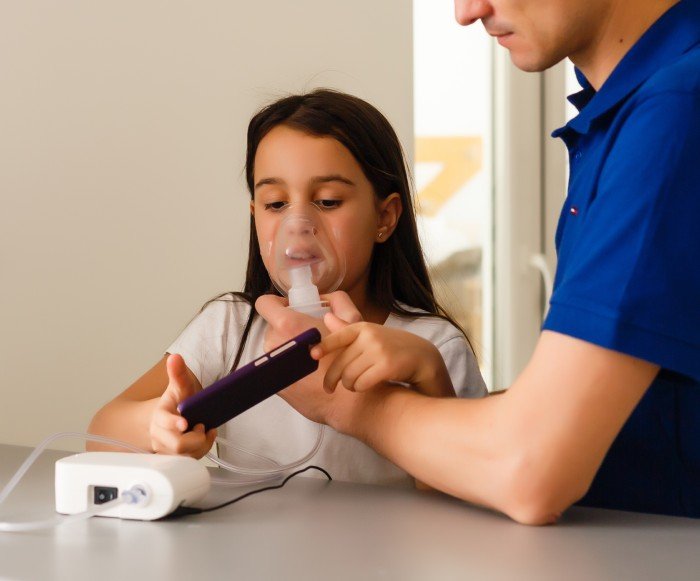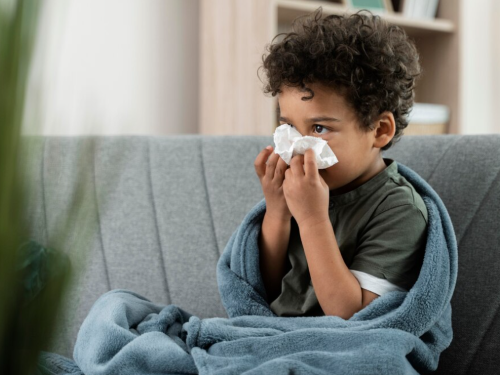pediatrician

Nebulization
Because you have asthma, COPD, or another lung disease, your health care provider has prescribed medicine that you need to take using a nebulizer. A nebulizer is a small machine that turns liquid medicine into a mist. You sit with the machine and breathe in through a connected mouthpiece. Medicine goes into your lungs as you take slow, deep breaths for 10 to 15 minutes. It is easy and pleasant to breathe the medicine into your lungs this way.
If you have asthma, you may not need to use a nebulizer. You may use an inhaler instead, which is usually just as effective. But a nebulizer can deliver medicine with less effort than an inhaler. You and your provider can decide if a nebulizer is the best way to get the medicine you need. The choice of device may be based on whether you find a nebulizer easier to use and what type of medicine you take.
Well Baby Clinic
Taking a newborn care class during pregnancy can prepare caregivers for the real thing. But feeding and diapering a baby doll isn’t quite the same. During the stay in a hospital or birthing center, clinicians and nurses help with basic baby care. These health providers will demonstrate basic infant care. Newborn care basics include:
- Handling a newborn, including supporting the baby’s neck
- Changing diapers
- Bathing
- Dressing
- Swaddling
- Feeding and burping


Childhood Infection
Childhood infections are common illnesses that can affect children during their early years of life. These infections can be caused by various microorganisms, including bacteria, viruses, fungi, and parasites. Here are some common childhood infections:
Respiratory Infections:
– Common Cold: Caused by viruses, such as rhinoviruses. Symptoms include a runny or stuffy nose, sneezing, coughing, and sometimes a mild fever.
– Influenza (Flu): Viral infection that can cause high fever, cough, sore throat, body aches, and fatigue.
Nutritional Assessment
Nutritional assessment is a comprehensive process that involves evaluating an individual’s nutritional status to identify any nutritional deficiencies, excesses, or imbalances. It is a crucial component of healthcare, as nutrition plays a significant role in overall health and well-being. The assessment helps healthcare professionals develop personalized interventions and recommendations to address specific nutritional needs.
Dietary History:
– Food Intake: Record of the types and amounts of foods consumed over a specific period. This may include a food diary or 24-hour recall.
– Eating Patterns: Assessment of meal frequency, snacking habits, and eating behaviors.


Pediatric Surgery
“Child is not a small Adult” and, therefore, require expertise that can cater to their needs. Babies suffer from different problems, their physiology is different, they handle stress differently, and the principles of treatment are entirely different from adults.
Pediatric & Neonatal surgery is the field of medicine that deals with the surgical care of new-born babies, infants, and children to the age of 18 years. This branch is highly specialized not only because one has to handle very delicate and miniature tissues, but also it requires a great deal of patience, compassion and understanding to handle the little babies and their very anxious parents.
Photo Therapy
Phototherapy, also known as light therapy, is a medical treatment that uses light to alleviate certain conditions. Here are a couple of common applications of phototherapy:
1. Skin Conditions:
– Psoriasis: Ultraviolet (UV) light is often used in the treatment of psoriasis, a chronic skin condition characterized by red, itchy, and scaly patches. UVB (ultraviolet B) light is commonly employed in this context.
– Eczema: Light therapy can be used to manage symptoms of eczema, a condition characterized by inflamed, itchy skin. Narrowband UVB is a common type of light used for eczema treatment.

